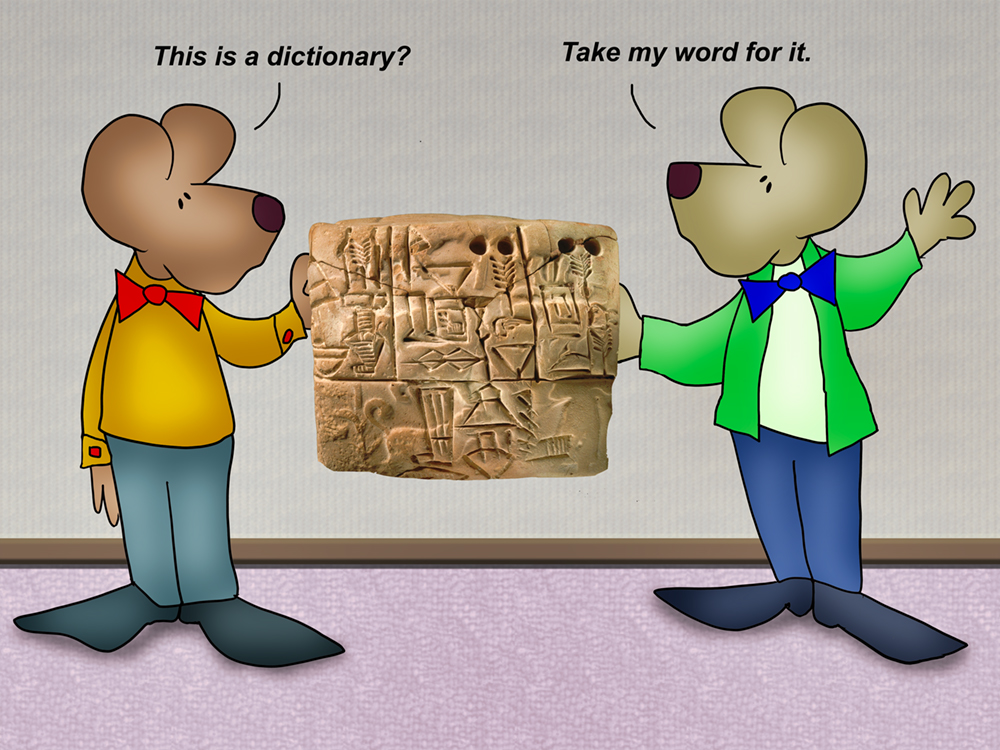Words are such an interesting thing.
I could sit with a dictionary, for a long, long time, and explore. In fact, before writing this, I was doing some research. Some investigating of facts. And I was completely sidetracked at the Miriam-Webster website.
For instance, I got hung up on “expiate,” a verb, which means 1: to extinguish the guilt incurred by. OR 2: to make amends for.
But then it cited a passage from the Bible, which read: “Disaster shall fall upon you, which you will not be able to expiate.” That doomy biblical prophecy (Isaiah 47:11) shows that expiate was once involved in our inability to confront the forces of evil. It was all more riveting than a Keanu Reeves movie.
Anyway, I saw this next entry on my “This Day in History” reminder.
On April 15, in 1755, Samuel Johnson’s “A Dictionary of the English Language” was published in London.
And I remembered yesterday’s entry at the history store.
On April 14, 1828, the first edition of Noah Webster’s dictionary was published.
All this dictionary publishing made me wonder when the first good book hit the stands. As it turns out, it is a little complicated.
Most scholars who hang out being scholarly on this topic, give the award to the Akkadian Empire and Sumer. Those smarty folks say the oldest known dictionaries came in the way of cuneiform tablets. That means there were wedge-shaped characters written on clay tablets.
Anyway, these “writings” were a bunch of bilingual Sumerian–Akkadian wordlists. All of this was discovered in Ebla (modern Syria) and dated roughly 2300 BCE. So, yeah. First dictionary, 2300 BCE. Heck, Christ wasn’t even a glimmer in Mary’s eye back then. And you noticed, I only mentioned Mary.
I could reprint the rest of the history here, but I won’t. I was mainly concerned, if truth be told, when the first English Dictionary came around. Because that is what I speak, primarily. And read, and write. My second language is not even the correct version of Pig Latin, followed by a distant third, that Spotty German.
But back to the English Dictionary. Which is recognized as the most popular official language in the world.
Things really started to happen around the planet during the early modern period. The early modern period is a time from 1500–1800 (roughly). This period follows the Middle Ages. It was a great time for our culture, our words, to experience quite a change.
The English language grew and grew. According to the Oxford English Dictionary‘s record, the number of words that were “available” for speaking more than doubled between 1500 and 1650. Many of those brand new words were borrowed into English from Latin or Greek. They would come around from the far-off countries by way of travelers and traders.
But, I’m taking a long time to come around to it. The first book generally regarded as the “first English dictionary” was written by a guy named Robert Cawdrey. He was a schoolmaster. He put out the first dictionary book in 1604. Cawdrey put together a bunch of wordlists which had been published earlier. Those wordlists came from various places, like various educational texts, such as Richard Mulcaster’s Elementary (1582) and Edmund Coote’s English Schoole-maister (1596).
So. There it is. 1604. First English dictionary. Final answer.
And now, we just have to go to https://www.merriam-webster.com/ and learn about it all, anytime, anywhere.
The book full of word meanings.
To give the rest of the books their meaning.
Which sometimes gives us meaning.
If you know what I mean.
=============
“I like good strong words that mean something…”
― Louisa May Alcott, Little Women
=============
“Be silent or let thy words be worth more than silence.”
― Pythagoras
=============
“A Word is Dead
A word is dead
When it is said,
Some say.
I say it just
Begins to live
That day.”
― Emily Dickinson, The Complete Poems of Emily Dickinson
===========
